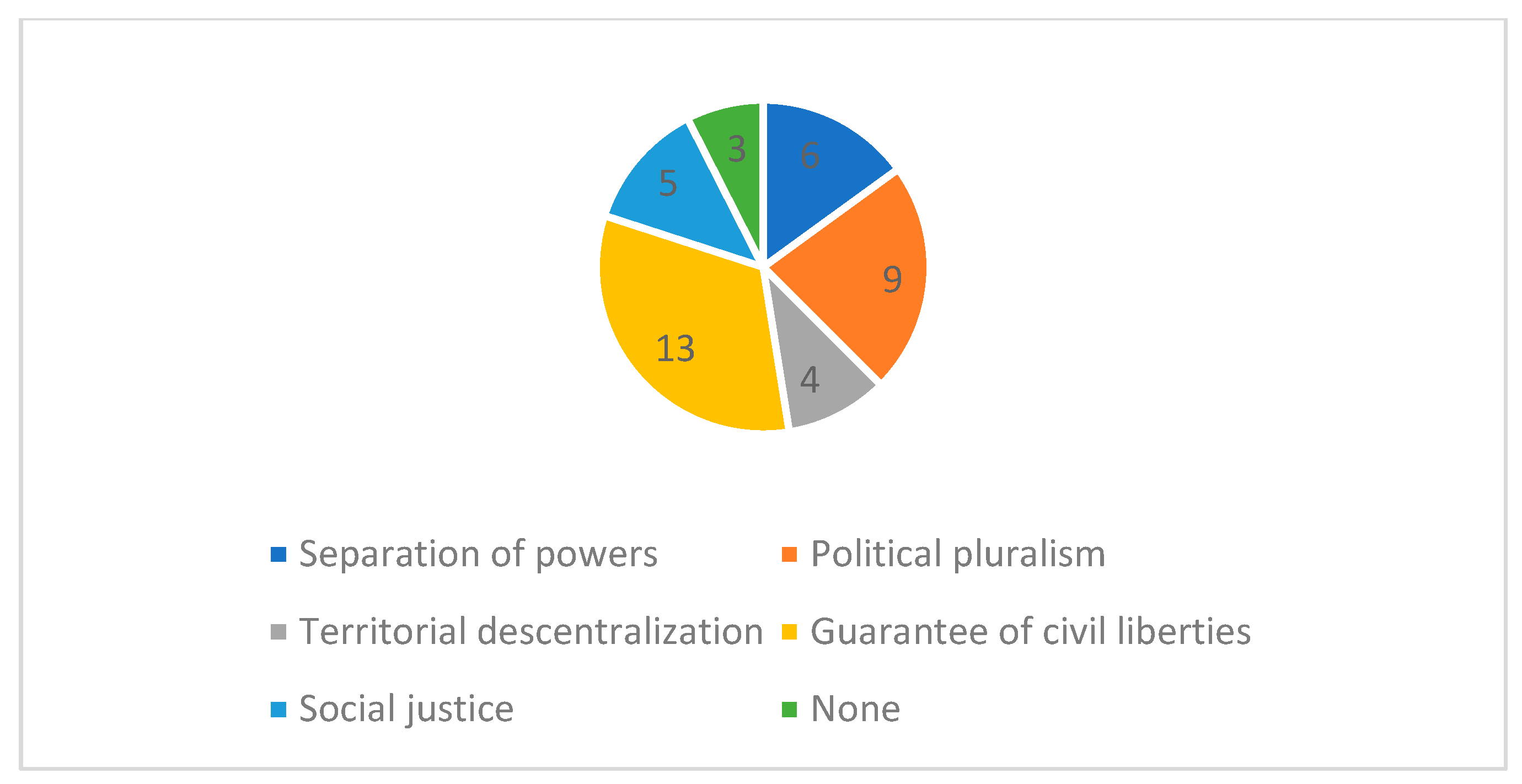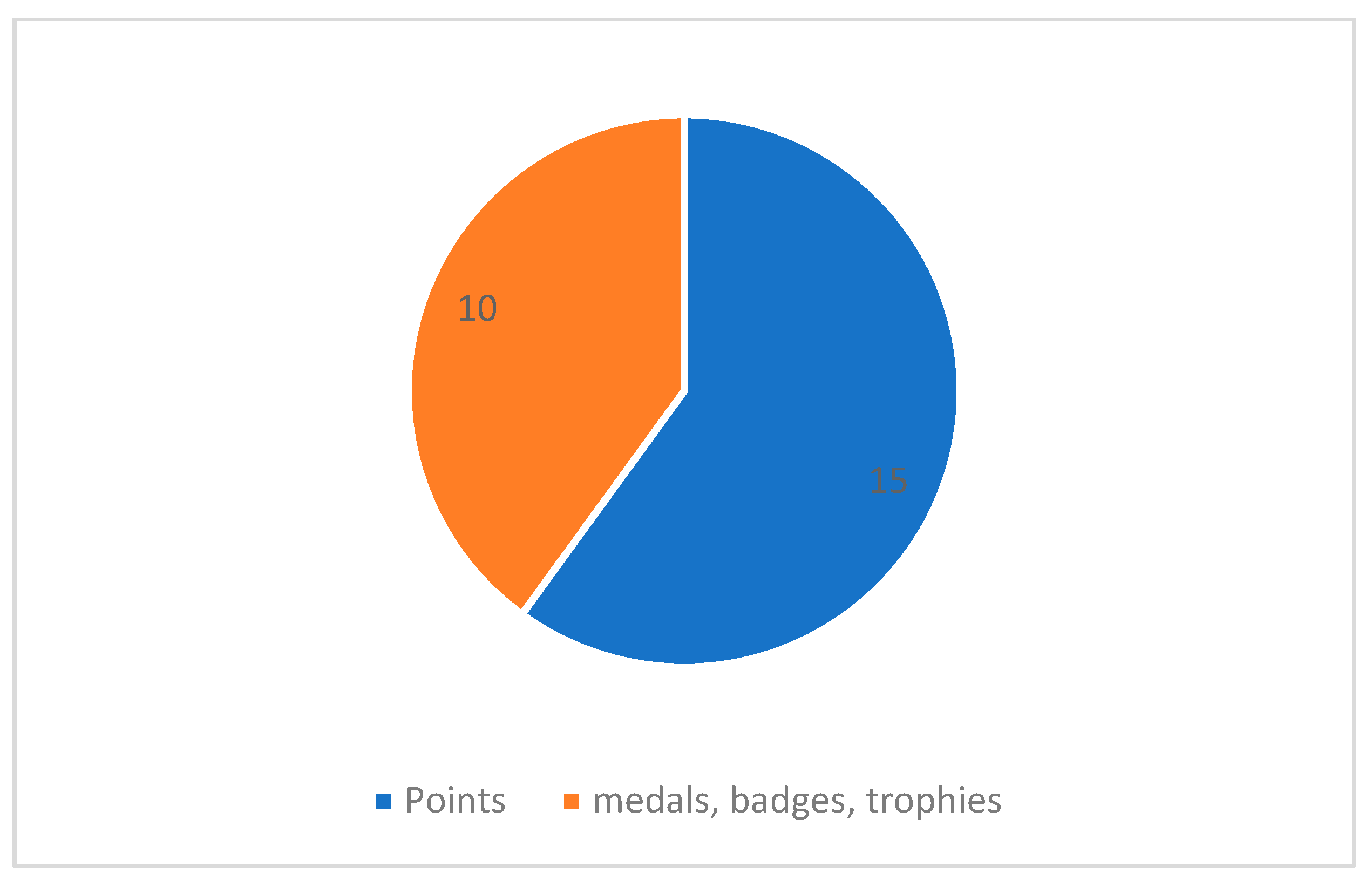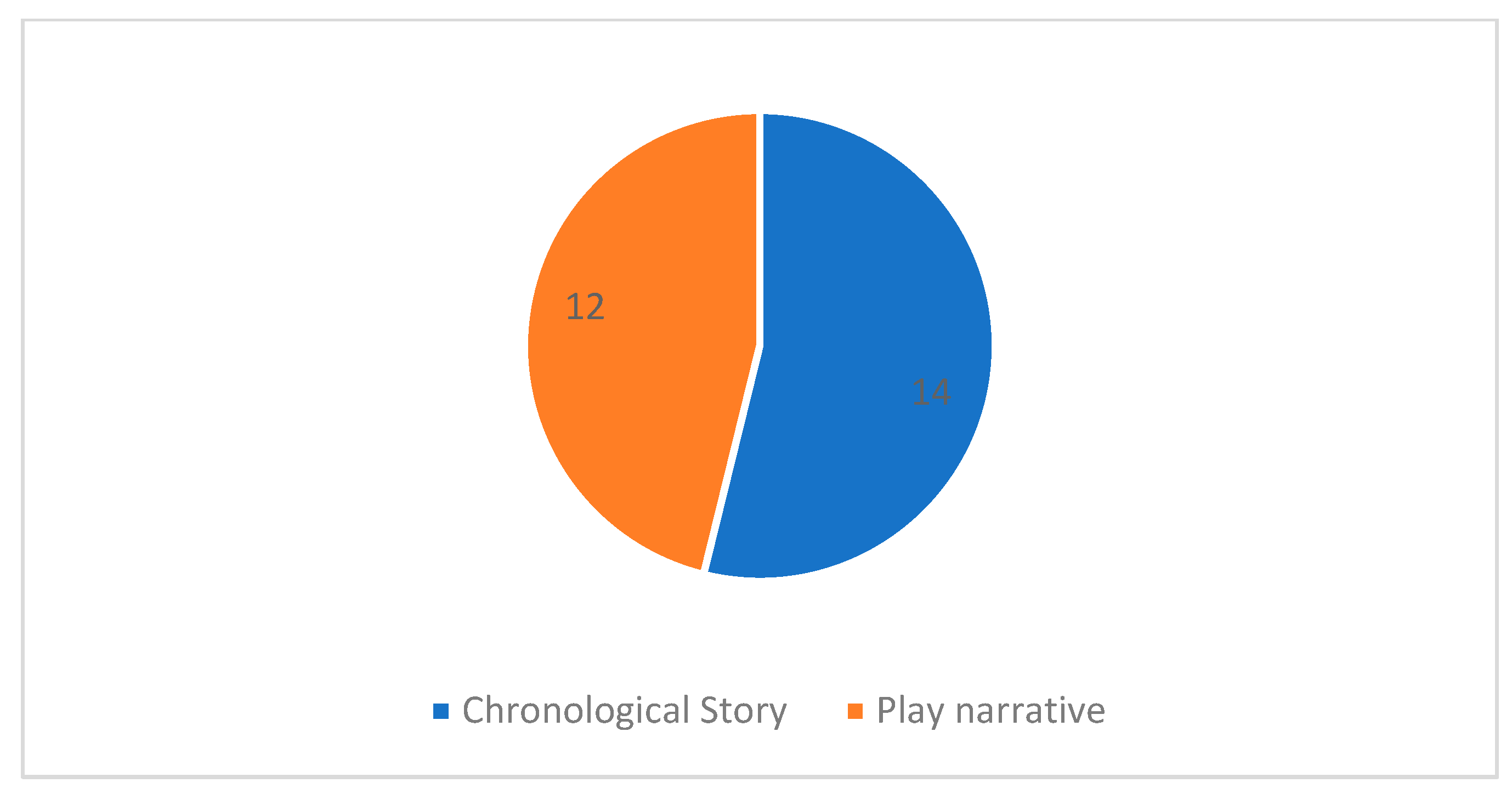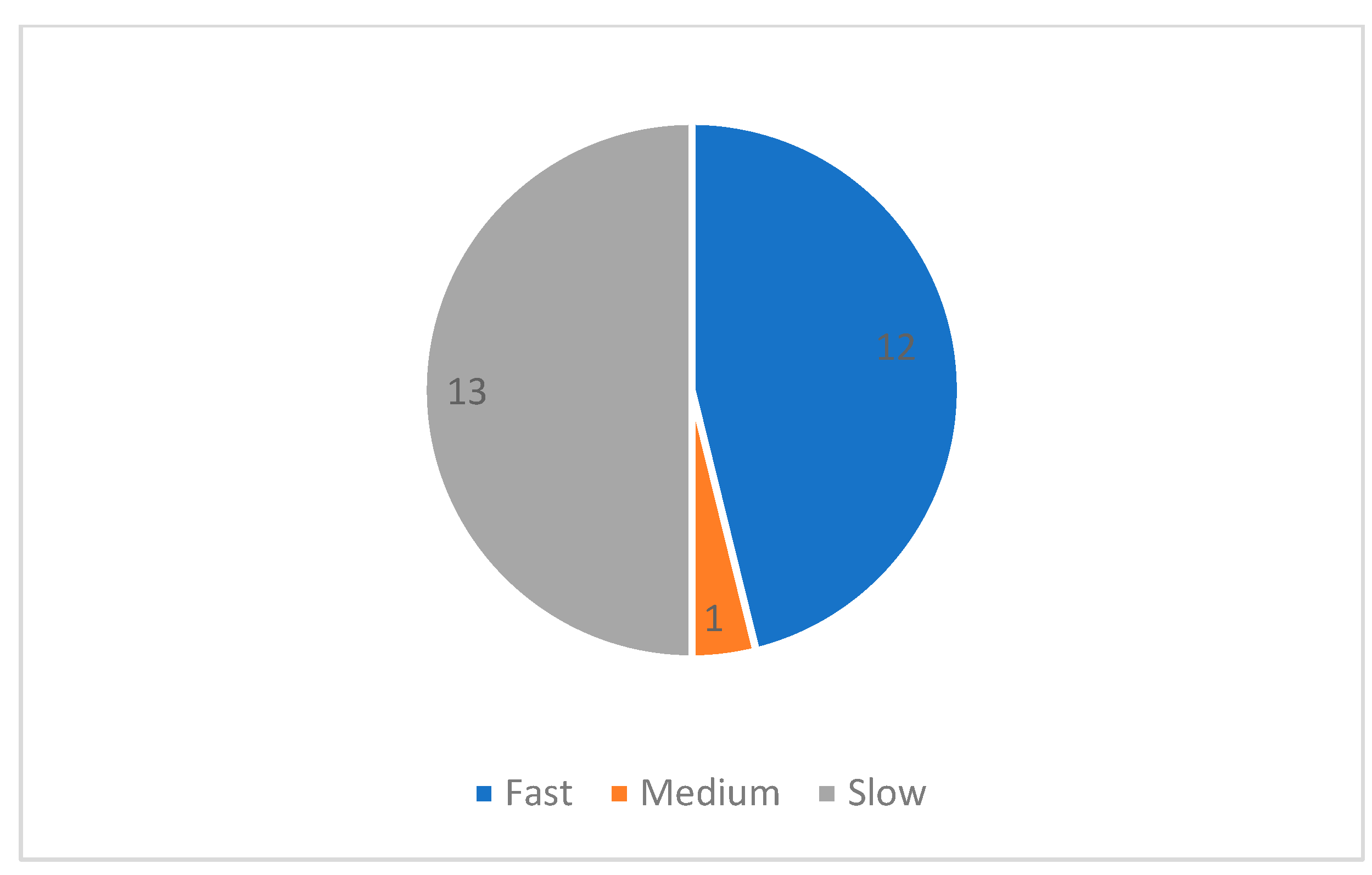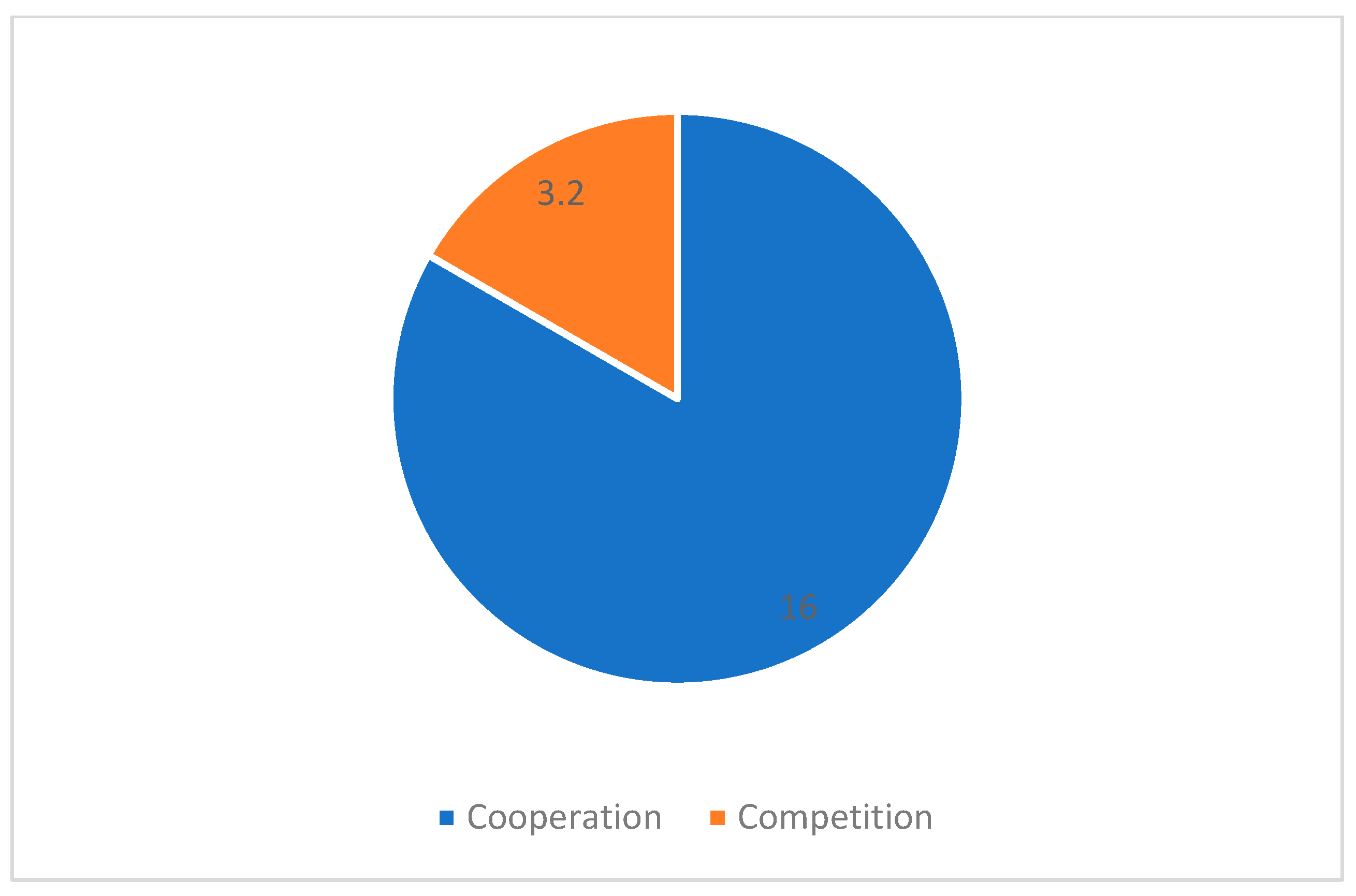Abstract
In current times, the concept of democracy has been transformed due to the ups and downs of the hyperdigitalized society, modifying its discourses and forms of participation. Recognizing that video games maintain a prominent role in the new generations, this research has the objective of analyzing independent video games related to the notion of democracy. For this reason, 26 video games were analyzed according to their democratic principles, their typology and their key components, resulting in a tendency towards the guarantee of civil liberties, political pluralism and separation of powers; likewise, there is a clear differentiation between persuasive and expressive video games, the former linked to polarization and criticism, while the latter responded to a reflexive conceptual line, added to the use of reward systems and progression in their key design components. It can be concluded that video games linked to democracy respond to an innovative interactive dimension that converts the traditional political canons by the creativity, freedom, and autonomy of the current audiences.
1. Introduction
Video games shape what is our reality. More and more video games are appearing in which people must take control of a city, state, or civilization. They must make decisions to manage its development. These games will present us with “possible worlds”: worlds that have existed, or worlds of illusion. Many video games are very similar to real situations becoming serious games or news games as is the case of the video game The Cat and the Coup about Mohammed Mossadegh, the democratically elected Prime Minister of Iran who suffered a coup d’état sponsored by the CIA [1]. There are other video games that are pure fun. They all offer us visions about the concept of what politics is, and in some cases about the ideal of democracy. There are video games about the role of citizens in society and about the correct form of organization. When we are introduced to these video games, it is immersive political learning [2].
The concept of democracy comes from a historical tradition related to policies and institutions related to our way of life assimilated in most Western countries. The idea of democracy goes beyond voting for a candidate every few years. For this reason, in recent years, there has been a disenchantment with political institutions (parties and rulers) [3]. In Europe, we are witnessing the rise of the extreme left and right-wing parties and the increase of fake news. As we will see in the article, most of the video games analyzed are not about representing democratic systems, but about knowing their strategies and modus operandi reflected in their implementation.
1.1. Government and Ludic Experience
Cultural products (music, books, video games, etc.) contribute to creating the representation of society and reinforcing the political impact [4]. The study by Imhoff et al. [5] evaluated the political learning of players in certain video games. Studies by Zamaróczy [6] indicate how video games are used as tools that promote citizenship values. Schrier’s studies [7] indicate how video games create ethical reflections. Dishon and Kafai [8] pointed out that video games promote civic values. This idea is exemplified by Geraci and Recine [9] in the video game Star Wars Old Republic where players struggle with political conflicts posed by 18th-century enlightenment thinkers and reflect on today’s world.
Exmeyer and Boden [10] tell how video games educate about public administration. Although for Pfister, Winnerling, and Zimmermann [11], what abounds most in video games is anti-democracy or non-democratic political systems. Political themes range from colonial issues [12], environmental issues or international politics [6] to human rights [13]. There are video games in which citizens organize themselves into power groups betting on various public policies [14].
Democracy is thought to have developed when Athenian citizens began to make decisions involving them through assemblies. Importance was given to deliberations, a device that trained civic virtue. Competing interests were negotiated in the search for a solution. Today, we understand democracy as the selection of leaders who represent us and make decisions for us. Democracy today is not as decision-making as in ancient Athens, but is a manifestation of consenting to competitive leaders [15]. In most democratic regimes, there are mechanisms of counter-power to eliminate any possibility of tyranny, such as the division of powers, the citizen struggle in strikes, or civil protests and that have been used to create a board game called “Junta” created by Merlin Southwell, published in 1978 by Creative Wargames Workshop, and published in 1985 by West End Games.
Culture, values, and learning are transmitted through video games. They create ways of thinking and acting. Video games are not only products of the cultural industry that generate money, but also create identity [16]. It is a channel of communication and media production with a strong penetration in the young population, who are its major consumers [17].
Playful mediation appears in cultural, economic, social, and political practices, and in the growing ubiquity of video games [18]. Video games reproduce hegemonic structures and shared repertoires. The reason why video games are getting into the marrow of our society is the increase of leisure time of the population and that we are not aware that in that time we are learning. The experiences lived in leisure time are going to generate our identities [19]. Gradually, the political order in which we live can be questioned, and critical thinking is developed based on the video games learned [20]. This is how video games become a learning tool in our media ecology, constantly playing and providing a political identity.
1.2. Videogames and Politics
Prime Minister Forever allows players to take the role of a politician in either the UK, Canadian, Australian, German, or US elections. The interface it uses is similar to the graphics used by the media during elections. Players are free to make their own decisions on how or where to run their political campaigns. To win, the player must become familiar with different political systems [21].
Video games are a tool for political education. There are games that reproduce the democratic political system. In Democracy 3 [22], one becomes a politician in a democracy who, depending on their actions, will make the designs of the country go in certain directions. In The Political Process [23] and in The Political Machine [24] are candidates for the presidency of the United States of America and the process of getting there. This is how you learn political theory: by playing being President.
In the video game Animal Crossing: New Horizon, there are aspects of political communication and civics that require hours of dedication [25]. This Japanese video game is banned in China. The game is, at first glance an island where the player, through hours of dedication, terraforms and builds a house. Players can dedicate themselves to picking flowers, cutting logs, having virtual animal neighbors, watching a sunset, etc. Song [26] points out aspects of digital democratization and the regulated processes of digital self-construction in Animal Crossing: New Horizon.
Video games related to politics and democracy are those that give us a historical journey and we are characters who lived it at the time. For example, an adventure game about the Islamic revolution in Iran and the fall of the Persian Shah called 1979 Revolution: Black Friday, where the players have the role of a young photographer from a bourgeois Iranian family loyal to the Shah’s regime [27] and learn how the Iranian revolution developed and the reasons why the citizens decided to reject the Shah and the interventionism of the United States. Video games can be used to point out political, social and cultural biases and prejudices [28]. To learn about the Second World War and the political developments of nations, we have Hearts of Iron [29] or Assassin’s Creed Unity [30], in which players can experience the death of Jaques de Molay, Grand Master of the Order of the Templars, the triumph of the Borgias or the French Revolution. By living in the past, we can understand political systems and social change.
Other video games use humor to criticize the dominant values of Western society, such as the waste of violence or the cult of the body, as in the case of Grand Theft Auto V, where one can get rich legally (playing golf, discovering treasures, trading cars, selling food, beating thieves, hunting animals, or cultivating fields) or illegally (stealing cars, robbing people, breaking traffic laws, or killing) [31].
Another video game to learn about border management is Papers, Please where the fictional communist state of Arstotzka has finished a 6-year war against the fictional country of Kolechia and asks for half of the border town called Grestin. The player’s job is to be a border inspector and control through passports who enters and who does not enter. Papers, Please embodies the cultural mentality of work as play. The player must look for terrorists, spies, or counterfeiters. The video game has generated critical awareness of immigration and other sociopolitical issues [32]. The game can influence players’ opinions on political issues such as immigration [33].
Another type of video games is focused on the management of a city or territory such as SimCity [34], Tropico 6 [35], or Township [36], in which one must learn to develop economically and politically a city. It involves more local politics, such as managing waste, solving traffic, feeding the population, lack of budgets, and execution times. They are strategy video games that are the heirs of board games such as Risk. Examples of these types of games are Civilization created by Sid Meier in 1991 and which continues to this day with Civilization VI [37]. Other examples are Europa Universalis IV [38] in which we must be aware of multiple factors, from politics, economy, war, or religion. Victoria II [39] is a strategy video game about the consolidation of the English empire. There is also the current Crusader Kings III [40] set in the Middle Ages, which is a strategy game and also a role-playing game where the player must increase their territories (lordships), but can also play as a character. To understand how an earl can become a duke and so on to a King or an Emperor. Additionally, to continue in the game, you must have a son to continue your descent. You can play as Catholic nobles, but also Muslims, Indians, or Chinese. The game starts at the beginning of the Middle Ages, in the ninth century, and ends until the end of the Middle Ages in the fifteenth century. Age of Empires is a saga that has been on the market for 25 years. Its latest update is Age of Empires 4 [41], which can be played in single or multiplayer mode. In single player mode, the player can learn about history based on multiple historical events gathered in different campaigns of the Middle Ages and in different empires (Ottoman, Russian, Chinese, French, or English).
Anno 1800 [42] is a videogame of another long saga that consists of building and managing cities on different islands. The player has to establish trade routes between the islands and trade, attack, defend, and obtain resources. With the passage of time of the hours in the front of the screen, they player will see how their territory will develop and will pass a level. Technological changes and conflicts fuel social change.
Other video games encourage social commitment to issues such as poverty, different physical and cognitive disabilities, drugs, gender violence, migration, bulimia, human rights, promotion of democracy, climate change, and cybercriminals or cyberbullying [43]. As an example, we have the video game The Tearoom [44]. It is a critique of censorship. The video game puts us in the role of a homosexual living in 1960 in Ohio, and at that time, the political authorities decided to spend public resources of taxpayers to put a police surveillance system in public toilets to locate homosexuals. Another example is the character Connor Ratonhnhakétön in Assassin’s Creed 3 [30], a Native American during the War of Independence who would later be massacred by the English. Video games with democratic content aim to make us live experiences, humanize, and empathize with the roles we are playing, and understand the characters’ problems [45]. These video games serve to change values in citizenship. Studies by Mainer et al. [17] show that those people who have played games with inclusive themes are more empathetic towards vulnerable people.
Under the prism of science fiction, magic, or fantasy, we have video games that delve into topics such as racism or class struggle. For example, in The Witcher 3: Wild Hunt, a role-playing game or open-world game, where in addition to killing you must communicate and make decisions. The player has to know how to treat characters and whether or not to help other characters. Detroit: Become Human is an interactive video game that tells a harsh and realistic story that everything we decide matters. The plot starts in 2038. The city of Detroit was a symbol of industrial power in the middle-two of the last century and is bankrupt and almost deserted. It appears as the cradle of robotics, a city with serious problems of racism. The player has the role of three androids at the service of the human being (a detective who must locate deviant androids, an android who works in the mansion of an old man and an android who works in a dysfunctional home). The player in this adventure game begins to take the side of the androids and to consider them as subjects with social and political rights. This video game has been called potentially political as it represents different ideological choices [46]. Another first-person shooter but also a strategic game set in a dystopian world is Bioshock. It is a futuristic underwater adventure built as a social utopia that, at first, runs very well, giving freedom to artists, surgeons, and all people who have a key role in society. However, freedom and lack of respect between people eventually make everything go wrong and where chaos ends up resigning. It appears the consumption of an addictive substance that we must use to escape. We must make ethical decisions, such as whether to shoot girls who appear in the adventure. In the video game, you can see the political and social concerns in conjunction with the dehumanization of technology and the danger of large business corporations. It is a reflection of current social anxieties and a political critique of today’s societies [47].
In summary, videogames in the political context that advocate the inclusion of place, issue relevance, and political actors in the design of the experience can have an influence on public opinion [48], critical knowledge, and the construction of the audience’s political self [49].
1.3. Pandora’s Box: Online Multiplayer Video Games in Politics
Online video games have become spaces of social and political struggle [50]. Multiplayer online video games have become the new forums of ancient Greece where people talk, defend different issues, and fight for their own benefit and that of the group to which they belong. Online and multiplayer video games have become part of the social ecology of many gamers. Many have found friendship, business opportunities and even love. They have also found the possibility of finding people with the same ideological and political interests and the ability to take collective action both in the cyber world and in real life. They have become spaces for the creation of collectives and for the realization of identities and also of conflicts. The large number of hours spent by gamers turn virtual spaces into their own reality and most of the social and political mobilizations are carried out through these platforms [51].
The ability to organize is fundamental in many multiplayer online video games. So much so that, for example, in Lords Mobile [52] where the player, if wanting to grow in power, must belong to a guild. Guilds have a limit of 100 members. There are very competitive guilds where members are in daily contact via WhatsApp for quests and events. Members will call other members on the phone if any member of their guild observes an enemy attack. Agreements and diplomatic missions are made to control territories. There are mandatory rules in some guilds that, if broken, expel members. Belonging to certain guilds is a privilege because it gives the player power and increases the benefits in materials so the player can grow faster. There are daily obligations that require players to be in front of the screen a few hours a day [53]. This daily work, teamwork, and a motivating leader who rotates, coordinates, and listens to its members, make players victorious, and many players want to belong to such a guild. This organization allows objectives both inside and outside the video game (creation of peer groups, face-to-face meetings, love affairs, business opportunities, and, of course, political interests). In Lords Mobile, there are fantastic guilds, where there is no interactivity whatsoever and they are zones of passage for newcomers, horizontal guilds, where everyone interacts with everyone, authoritarian guilds created by a player who does not give up the leadership and is absent on demands, guilds where people learn how to play, and democratic guilds where all decisions are shared and the leader is elected from time to time.
This learning of political issues will help young people for future organizations to which they will belong, through issues of leadership, the organization’s objectives, power, or economic management [54]. Multiplayer online video games are being used by their players to create other content on social networks or other virtual channels outside of the game itself. The players’ experiences are greater than the ones created by the game itself, filling it with new content and new visions that move away from the game itself. The networks created in these multiplayer online video games extend beyond the video game to friendship, love, work, and politics. These spaces are becoming social laboratories where people experiment with playing social organizations and interactions to achieve ends in an imaginary world of limited resources. Perhaps the video games of today will be the future political systems of tomorrow.
This article is organized as follows: it begins with a theoretical review of video games and politics, and continues by explaining the methodological process of the study, which was based on establishing three specific objectives oriented to the data obtained from open-access video games, the subsequent section indicates the results, concurrences and patterns of the analyzed video games. The last section summarizes the most important elements of the study, the fulfillment of the objectives, and a prospective interpretation of the video games connected to the policy.
2. Materials and Methods
The general objective of this research is to analyze video games related to the notion of democracy. To achieve this objective, the following specific objectives are established: 1. to review the democratic principles that seek to promote through video games; 2. to describe the video games that are incorporated in the political ludic experience; 3. to describe the key components of the selected games based on mechanics, dynamics, and aesthetics.
For the methodological design, a qualitative approach is applied in game studies as formal analysis [55], which allows deciphering the anatomy and design patterns of the games through the systematized description of the components, thus facilitating the understanding of the game system.
Formal analysis, typical of video games, was configured through non-participant observation, defined as: a research technique to obtain information logically related to the facts without direct intervention, therefore, there is no relationship between the analyzed scenario and the viewer [56]. The observation was applied for three months: 15 July 2022, until 23 September 2022, in which 4 researchers participated from the areas of communication and sociology. The researchers met 11 times to discuss, argue, and present the preliminary results obtained from the videogames. In the first session, 15 July 2022, they selected the democratic principles and ludic typologies criteria of video games for its application, in the following three sessions. On 22 and 29 July 2022 and 5 August 2022, the preliminary results on the democratic principles were discussed, Subsequently, on 12, 19 and 26 August 2022, there was a debate and a consensus reached on the play typologies. Then, on 2, 9 and 16 September 2022, the experts discussed the progress generated by the video games components. The observation culminated with a final meeting on 23 September 2022 formalizing the results of this research.
The observation process involved three sets of criteria for analysis, the first referring to democratic principles, the second to determine the types of video games, and the third to delve into the key components of the gaming experience. Regarding the democratic criteria, the characteristics internalized in that form of government were reviewed [57,58,59] reaching consensus on the following:
- Separation of powers: independence of the executive, legislative, and judicial governments’ branches.
- Pluralism of political parties: electoral system that guarantees free and fair elections.
- Territorial decentralization: mutual limitation, delegating the administrative functions of the State.
- Guarantee of concrete freedoms: a system of protection of the rule of law, maintaining as precepts the basic freedoms of expression, conscience assembly, personal freedom, the right to property, equality, non-discrimination, the rights to life, education, work, culture, and health.
- Social justice: it has repercussions in compensating for the distribution of wealth, fairness of the judicial system and equality of opportunities.
Based on these 5 characteristics pertaining to democracy, we continued with the description and analysis of the selected video games. For this purpose, two macro-dimensions were established based on the intentionality of the designer:
- Serious games: provide learning to the player [60].
- -
- Persuasive games: convince the player about a position, idea or proposal, prescribing attitudes and provoking specific effects [61].
- -
- Expressive games: sensitize the player and create awareness by exploring cultural, social and psychological problems with the aim of creating empathy about a situation.
- Entertainment games: based exclusively on fun [61].
The academic literature displayed multiple video games’ classifications as it presents in King, Delfabbro, and Griffiths [62], and De Lope and Medina-Medina [63]. The authors of the research agreed that the proposed simplified macro-dimensions have the relevant characteristics to provide a basis for phase three that responds to the key components embedded in the play experience.
The third phase aims to determine the key components of the analyzed video games, recognizing the multiplicity of sets that fulfill this function: DPE framework [64] or DDE Framework [65], however, the first of them is oriented to the educational theme and the second contains a link with informatics indicators such as the technical details of the interface. Therefore, MDA framework model [66] of mechanics, dynamics, and aesthetics has been selected as the classic model for analyzing the structure and key components of video game design:
Mechanics: particular components that are part of the imbued narrative, the most important of which are points, levels, medals, quests, virtual goods, position table.
Dynamics: behavior of the game as a system that allows formalizing the notion of gameplay, among them, rhythm, diversification of objectives, and interpersonal purpose.
Aesthetics: emotional response evoked by the experience, including curiosity, surprise, satisfaction, pride, connection, envy and confidence, adding the game design style.
According to the three sets of criteria reflected in each stage of this research, the following video games selected from Itch.io and Gamejolt platforms were analyzed, both are independent video game repositories [67] in which the search “democracy” was performed choosing only those of free access, obtaining the following results (see Table 1):

Table 1.
“Democracy” videogames in Gamejolt and Itch.io.
Under the determined search criteria there are 25 video games in Gamejolt and 35 in Itch.io, however, 14 were selected in Gamejolt and 15 in Itch.io, keeping those of free access, explained in English or Spanish and which were in their final version, obtaining a total of 26 video games to which analysis criteria mentioned above were applied.
The coding procedure used in this research for the establishment of the analysis criteria in each of the phases was organized in two actions: first, a consensus was reached among the participating researchers for the selection, delimitation, and application of the criteria. The second was prescribed through theoretical coding [68], structuring the categories according to the scientific literature reviewed for each phase. For the criteria of the video games analyzed, the first and third stage allowed their integration into one or more categories, while the second stage, referring to the typologies of video games, was self-exclusive, integrating only one video game.
3. Results
In order to organize the results obtained, we have organized information in 3 sections: the first focuses on the main democratic criteria evidenced in video games, the second on the typology of the video game, and the third on the key components applied in video game design.
3.1. Democratic Criteria in Video Games
Regarding 26 video games analyzed in the political sphere-see Figure 1-88% (23/26) are linked to the 5 democratic criteria proposed. There is only the exception of 3 video games, Democracy Battle, Little Fat Boy, and Save Democracy in Greece, that do not respond to any democratic principle, responding to a vision disconnected from political precepts. The first contains, as its narrative core, a potential alien invasion, and the second videogame concentrates on solving riddles during 100 s to avoid the fall of a nuclear bomb that endangers the citizens of a country. The last video game of this section, Save Democracy in Greece, aims to shoot all the images of the politicians that gradually appear in the videogame, and when you finish shooting them all, the game ends by congratulating the shooter for saving the democracy in Greece.
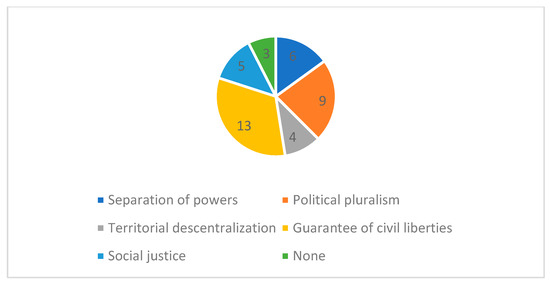
Figure 1.
Democratic standards in videogames.
As for the democratic criteria observed in the video games, the information collected shows: separation of powers (6/26), political pluralism (12/26), territorial decentralization (4/26), guarantee of freedoms (13/26), and social justice (5/26). Evidently, there are video games that share in their design several democratic criteria, in particular, there are 10 video games that share 2 or more democratic criteria, going deeper into them:
- -
- Die Partei: political pluralism/social justice. The participation of three political parties that ideologically dispute the public spaces, in addition, the reflection of social justice is kept in evidence in the narrative when the law of the strongest is emphasized.
- -
- The Weimar Republic: political pluralism/guarantee of freedoms. Although it is a bipartisan dispute between only two ideological factions, it highlights the contrast of the strategies applied for the economic development of the Republic, delving into decision-making and variables to maintain the quality of life.
- -
- Femida: separation of powers/guarantee of liberties/social justice. Although the central axis is to propose the equitable distribution of justice, it also demonstrates the importance of freedom of expression and the separation of the powers of the State in the correspondence of exercising impartiality in the resolutions of the State.
- -
- Socratic Democracy: pluralism of political parties/social justice. Acting as a ruler in Greece, providing for the selection of different options that strengthen or diminish its popularity with the voters. It seeks to compete under the notion of bipartidism by balancing between decisions that generate acceptance among the different social levels.
- -
- Some Democracy Under Shower: separation of powers/social justice. During the dialogues of the video game, the characters express the preponderance of the division of powers to maintain the correct development of democracy. On the other hand, social justice is evidenced in the development of the gameplay through a metaphor about the equitable distribution of “water”.
- -
- God Bless Democracy: separation of powers/political pluralism/territorial decentralization/guarantee of freedoms. This is one of the most complete video games in this specific sample. Basically, it is about winning elections through slogans for California, North Texas, South Texas, Florida, New York, and the Lake Countries. To achieve this, the messages must be tailored to the characteristics of the voters.
- -
- Endless Democracy: political pluralism/guarantee of freedoms. It portrays the competitiveness of bipartisanship in terms of obtaining votes by controlling the sending of messages to potential voters subdivided into 8 groups. Freedom of choice is a condition for any democracy; therefore, the purpose of this experience is to keep the democratic game balanced for both political forces.
- -
- Time for Democracy: political pluralism/social justice. A videogame contextualized in Spain that seeks to understand the notion of political rotation in the government of the majority for the new generations symbolized through the fall of a dictatorship.
- -
- How to Rig an Election: separation of powers/guarantee of freedoms. The independence of the electoral power with respect to the executive power over the counting of votes is shown. On the other hand, the aim is to demonstrate the veracity of the postal voting by collecting them throughout the game, evading the police controls in charge of confiscating them.
- -
- Keep Everybody Happy: territorial decentralization/guarantee of freedoms. The aim is to harmonize the coexistence between 4 different groups, trying to improve their position, happiness and values by adapting them to their respective needs within the established environment.
Regarding the 13 games that correspond exclusively to a democratic criterion, it can be seen that those oriented to the guarantees of freedoms-The Democracy Times, BrazilianikMakia, Arrival of Democracy, Pledge to a New Tomorrow, Slava Ukraini!, Beneath the Surface of Democracy, Tragedy of TV, Operation: Forklift and Democracy Cat-highlight the importance of freedom of expression, promote the civic struggle, and parody the imposition of the Western vision under the concept of democracy. Next, in the political pluralism criterion—Ending Apartheid, Wave of Democracy, Your Cat lives in a Democracy—the incorporation of different political positions, interaction and feedback of these positions in the video game narrative is highlighted, as well as interventions from local parties, other countries and supranational organizations. To culminate, social justice, Venti Mesi relates to the survival of people during World War II in Italy.
In summary, 12% (3/26) of the video games do not correspond to any democratic criteria, 50% (13/26) are based on only one of the premises established by the criteria reviewed and 38% (10/26) respond to 2 or more democratic criteria. In line with what is prescribed, most of the video games connected to democracy contain an idea toward the establishment of the principles of this political system.
3.2. Typology of Democracy Video Games
In this research, two typologies of serious games are derived, persuasive and expressive, including a complementary category oriented to purely entertaining video games. As for the revised sample, 13/26 persuasive games, 10/26 expressive games, and 3/26 entertainment games were obtained. According to the theory expressed in the analysis criteria presented in the methodology, persuasive video games respond to convince the player about a position, idea, proposal, or ideology, while expressive video games aim to sensitize the player and create awareness by exploring cultural issues, and finally, entertainment video games have a purely trivial configuration, dedicated not to transmitting a specific message, but to motivate fun in the playful experience.
Persuasive video games (13/26) include: The Weimar Republic, Ending Apartheid, Arrival of Democracy, Slava Ukraini, Femida, Democracy Cat, Socratic Democracy, Some Democracy under shower, God Bless Democracy, Operation: Forklift, Beneath the Surface of Democracy, BrazilianikMakia, Wave of Democracy. The video games mentioned contain different lines of conviction, however, two topics can be emphasized, the first one being to act with propagandistic purposes on a political ideology, be it Mandela’s actions or the actions of the USA. The second responds to criticize the actions of an adverse position, among them, the failure of President Macron, the damage of the US in the Middle East, and the problems caused by Russia in Ukraine, among others. Whether by means of parody, comedy, violence or populist strategies, a marked position is established in the development of the video game.
The expressive video games (10/26): The Democracy Times, Tragedy of TV, Die Partei, Venti Mesi, Endless Democracy, Your Cat Lives in a Democracy, Time for Democracy, How to Rig an Election, Pledge to a New Tomorrow, Keep Everybody Happy. These games tend to be more symbolic, abstract, and with a reflective message imbued in their narrative. It also concentrates on two specific topics, rulers’ decisions and conceptual attributions of democracy. For the first, it demonstrates the difficulty and their respective repercussions in governmental decision-making, among them, the administration of justice, simulating the distribution of goods, equitable separation of income, the implication of vote-counting, and the effect of the media. The next topic puts into practice the concepts of democracy, emphasizing majority rule, the importance of participation, freedom of expression, transparency and peaceful coexistence.
To culminate this section, there is the entertainment category (3/26)—for example, Democracy Battle, Save Democracy in Greece, and Little Fat Boy—in which the video games lack a defined purpose beyond entertainment. They becomes classic games without a coherent narrative line, appealing to the reactive emotion of the players without a message aligned to any clear position. It is no coincidence that the same video games that do not share democratic criteria do not contain a notion beyond entertainment either.
3.3. Structure and Key Components of Democracy Video Game Design
3.3.1. Mechanics
To analyze the mechanics of the 26 games selected in this research, the following components were examined: reward system, progression, and narrative. Regarding the first mechanic, it was observed that 58% (15/26)-Figure 2-have a point reward system, i.e., the actions performed in the game have a score, which will later mark the success or failure of the participant in the game. These games are: Die Partei, Democracy Cat, The Weimar Republic, Ending Apartheid, Arrival of Democracy, Slava Ukraini!, Operation: Forklift, Socratic Democracy, Wave of Democracy, God Bless Democracy, Endless Democracy, How to Rig and Election, Pledge to a New Tomorrow, Keep Everybody Happy, and Beneath the Surface of Democracy. In contrast, the rest of the games analyzed use other types of reward systems such as medals, badges, and trophies (11/26). It should be noted that, according to the literature reviewed, the mechanics are consolidated as a factor of extrinsic motivation for the player, since the reward systems are a retribution for satisfactorily completing missions and challenges.
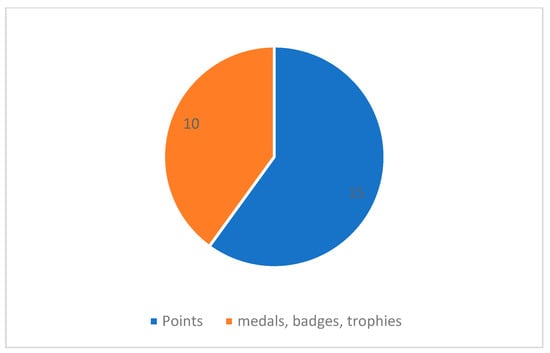
Figure 2.
Reward systems in the video games.
Regarding progression, it has been shown that of the 26 games selected, only 38% (10/26) have this component, which is related to the evolution or feeling of growth or progress of the player in the game. In this sense, it is observed that players must complete phases, levels, challenges, missions, or challenges that are linked to each other, that is to say that they unlock higher phases and allow the participant to advance. Among the progression components are the levels or phases, which were applied in 46% of the games (5/10), being these: Democracy Cat, Democracy Times, God Bless Democracy, Time for Democracy, and Tragedy of TV. On the other hand, 36% of games applied challenges (4/10), while the remaining (2/10) applied missions. Here, it is worth noting that, evidently, a game can share more than one progression, as is the case of Tragedy of TV, and have levels and lives.
In the case of narrative, understood as the guiding thread of a story in the game, two types are derived: chronological narrative and gameplay narrative. The first refers to the narrative that allows the player to be part of the story, therefore his decisions can change the destiny of the story. The second refers to the answers that the player gets every time he takes a significant step in the game. In this sense, the chronological story corresponds to 54% (14/26)-Figure 3-of the games analyzed, these being the games that require more attention from the player to understand the development of the story: Tragedy of TV, Keep Everybody Happy, Pledge to a New Tomorrow, Time for Democracy, Your Cat Lives in a Democracy, Some Democracy Under Shower, Democracy Times, Socratic Democracy, Femida, Ending Apartheid, The Weimar Republic, and Venti Mesi. The remaining 46% (12/26) use gameplay narratives.
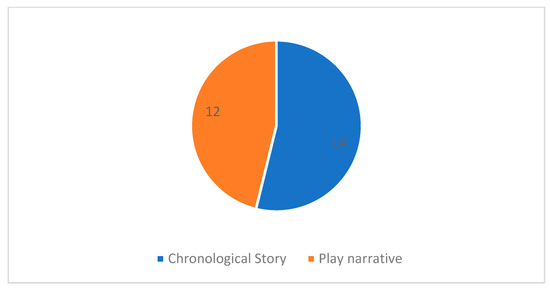
Figure 3.
Narrative in democracy video games.
3.3.2. Dynamics
To analyze the dynamics of the selected games, as shown in Figure 4, two components were taken into account: game rhythm and interpersonal purpose. Regarding the first one, it has been determined that 50% (13/26) of the games selected for this analysis have a slow pace, which in most of the games is due to the fact that they require a certain level of reading and comprehension, i.e., the player must process the information received as progresses through the game. The games that share this characteristic are: The Democracy Times, Venti Mesi, Ending Apartheid, Slava Ukraini!, Femida, Some Democracy Under shower, Wave of Democracy, God Bless Democracy, Your Cat Lives in a Democracy, Time for Democracy, Pledge to a New Tomorrow, and Keep Everybody Happy.
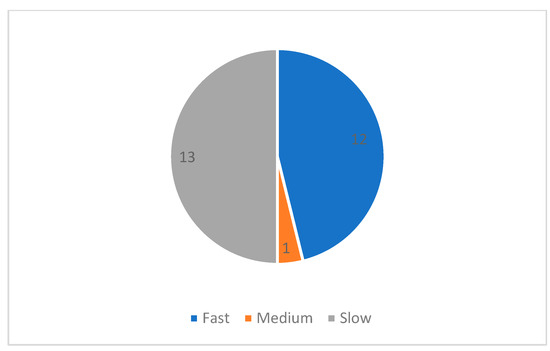
Figure 4.
Rhythm in democracy video games.
On the other hand, 46% (12/26) of the games respond at a fast pace. In this case, the game is marked by the player’s haste in applying strategies or changing moves in their environment. In addition, only 4% (1/26) of the games have a moderate pace, this being Socratic Democracy.
In terms of interpersonal purpose, 62% (16/26) shown in Figure 5, express cooperation with the development of the game itself or towards a particular objective. While 38% (10/26) indicate competition. Among the games in which cooperation is established, the following stand out: Tragedy of TV, Pledge to a New Tomorrow, How to Rig an Election, Time for Democracy, Your Cat Lives in a Democracy, Some Democracy Under Shower, De-mocracy Time, Socratic Democracy, Save Democracy in Greece, Operation: Forklift, Femida, Slava Ukraini!, Ending Apartheid, The Weimar Republic, Die Partei, and The Democracy Times.
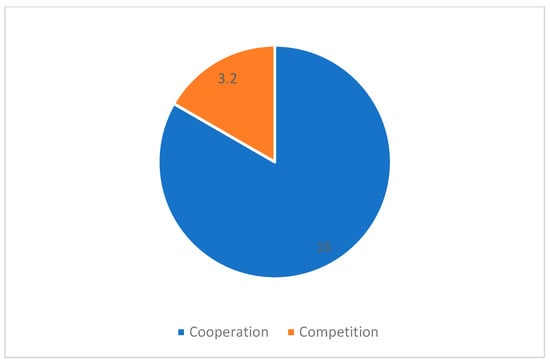
Figure 5.
Interpersonal purpose of democracy video games.
3.3.3. Aesthetics
In terms of aesthetics, the elements analyzed were both the observed emotional responses that prevailed in the video games and the style design. In the first question related to aesthetics, the following emotional response was identified: empathy 31% (8/26), satisfaction 31% (8/26), curiosity 15% (4/26), confidence 15% (4/26), and surprise 8% (2/26). However, taking into account that emotional responses are subjective factors, there are video games that share two or more of them, these being: Tragedy of TV, Beneath the Surface of Democracy, Little Fat Boy, and Wave of Democracy. Regarding the style design of 16/26 flat art, involving scenery and objects without depth or volume, the following video games are noted- The Democracy Times, Venti Mesi, Some democracy under shower, God Bless Democracy, Keep Everybody Happy, among others. Video games with 5/26 vector art, referred to the use of mathematical algorithms for the design of objects generating higher quality in each of the elements that make up the interface, among them are: BrazilianikMakia, Beneath the Surface of Democracy, Little Fat Boy, Your Cat Lives in a Democracy; Socratic Democracy, Time For Democracy. Games with 2/26 pixel art refer to the design of characters and objects through basic pixel style foe example: Save Democracy in Greece and Operation: Forklift. Finally, for 1/26 monochromatic art is limited to the use of one or two colors of the color palette, usually being in the grayscale, only Democracy Cat is found. In summary, it is shown that the di-design of the video games are not excessively elaborated without making incursions into different proposals and with a striking added value, giving priority to the message rather than the aesthetics.
4. Discussion
In the political life of the new generations, democracy is a controversial concept, in which it has been foreseen as a weakened system that focuses on the electoral act as a symbol of its sovereignty, a hyperdigitalization of the media with multiple sources, and platforms of information and the discrediting of its institutionalization [69]. Although today there is a debate about a transition with new forms of citizen empowerment, new ways of teaching the principles of democracy and new forms of management [70], it is evident that its mutation is inexorable to the times, being assumed towards new challenges, being built towards alternative protagonists that are organized in new forms of participation, and strategies that promote their vindication.
Among these new forms of participation, besides being found in social networks [71], there are also video games, which, amalgamated into a digital interface, allow the player to emphasize the questions and discernments of users about the future of democracy, especially when it comes to independent video games. This is the case of the sample selected in this research, which does not respond directly to the market of the gaming industry which responds to certain market parameters [72], but comes from the same citizens who, through their own initiative, intend to create video games to express their concerns, interests, and social problems.
In this context, independent video games are mechanisms of political cyberculture that penetrate other metrics and different audiences, expanding the frontiers of the possible scope of democracy. This argument can be observed in the results of this research in which it is demonstrated that the main democratic criteria emitted in the games and inferred as a recurrent phenomenon in their purpose are the guarantee of civil liberties, political pluralism, and separation of powers.
As for the first, the guarantee of civic freedoms goes in correspondence with the maintenance of human dignity, which is configured with the search for security, prosperity and cooperation of the population, implying a direct concern for a more ethical and transparent order of compliance [73]. For its part, the political pluralism manifested in video games seeks to serve as a parody of one of the most consistent options in democracy: bipartisanship and polarization. It can be inferred that this is due to the simplicity of the discourse when there is a common opponent to the Westernized vision, proposing an antagonistic reference with its governance [74]. This disposition can generate two readings; one of them is the most simplified version of understanding the hegemony of the struggle between opposing visions at the historical level that inevitably do not conceive a reconciliation or criticism towards a political anachronism with the gradual intervention of other actors in politics as supranational entities and or the autonomy of citizens themselves. The other is that separation of powers, which can be approached as one of the foundational doctrines of democracy, being one of the institutionalized characteristics of the constitutional order by regulating the exercise of each of its instances [75]. However, in the analyzed video games, the use of different narratives to demonstrate the consequences of usurpation by the executive power, hindering the way of proceeding by other governments, even showing the obstacles and pressures that influenced different institutional branches.
Continuing with the most relevant findings of this research, the second specific objective, which responds to the typologies of serious games, explains the differentiation between persuasive video games and expressive games. The sample is mostly composed of persuasive games, and this may be due to different reasons: their design provides the possibility of incorporating basic mechanics, it favors the transmission of a specific story, and they are more intuitive and respond to a critical discourse [76]. On the other hand, the expressive video game emphasizes a more theoretical vision of the subject matter, incurring a more interpretative vision in the gameplay and motivating reflection [77]. When both conceptualizations are transferred to the political context, it is shown that persuasive games use two strategies: to defend a position, ideology, or party, or to use mockery, parody, or comedy to demonstrate the shortcomings of their counterpart; complementarily, expressive video games invite reflection and analysis of political phenomena by relating cases, or also at a more generic level, by advocating a moral, message, learning about the democratic system. In fact, this is confirmed by the type of videogames used: while persuasive videogames commonly use the shooter, platformer, or action-adventure genres, expressive videogames tend towards puzzle or strategy, ludo-novel, or idle.
In order to fulfill the third specific objective of this research, which is to describe the key components of the selected video games, it was developed an analysis of the mechanics, dynamics and aesthetics was developed and applied to each video game. The main finding is that the components of video game design are closely related to each other. It is no coincidence that there is an evident consensus regarding the narrative and the rhythm of the game, elements that despite not responding to the same criteria share similar percentages: slow-paced games are mostly those that use a chronological narrative and therefore require the player more time to process the information presented by the game. At the same time, the interpersonal purpose is linked to the emotional response, so that games of competition generate feelings such as satisfaction, curiosity, and surprise, while cooperative games generate a connection between the participants or with the cause for which the game is being played.
This research has had a series of obstacles related to its realization, emphasizing the availability of time to be dedicated to each of the video games by the participating experts, the accessibility for downloading some of them, and the establishment of criteria that included all the video games despite their heterogeneity. It is recommended that future researchers replicate the methodology for video games dealing with other political systems, incorporate comparisons between the different types of democracy—direct democracy and representative democracy—add a sample of video games from multinational companies in the industry, and finally complement it with the perception of the designers and the audience who play these video games.
5. Conclusions
According to what has been reviewed, this research aims to offer an answer to an academic debate generated in the social sciences on the new transmedia spaces where new discourses and realities of democracy are configured. Political video games, especially those that work on the notion of democracy, manage to distance themselves from a purely trivial design obfuscated in the momentary and superfluous fun, to establish themselves as instruments of critical empowerment of citizenship where the principles of political systems are deepened through logical narratives that show the construction of a deep vision of political systems in history and the present, thus presenting a new interactive dimension of communication close to the new generations.
Within the framework of the new generations, there is also a need to explore the prospective opportunities contained in virtual reality platforms for political video games. These immersive spaces labeled from the metaverse can be configured as a space to bring young people closer to the political system by simulating electoral debates, getting to know the possible candidates, understanding the common social problems, and their strategies to mitigate them, among other things.
Although this is an exploratory study, its procedural-methodological systematization process led to the establishment of patterns in its findings, demonstrating the main democratic criteria applied in political video games, their respective typology, and their most reiterated ludic components in their design. Therefore, this research seeks, in addition to enhancing studies on this area of knowledge, to also act as a reference for research on political communication, sociology, game studies, and related branches.
Author Contributions
Conceptualization, I.M.G.; methodology, A.T.-T. and C.P.C.; software, M.H.B.; validation, A.T.-T., I.M.G. and M.H.B.; formal analysis, I.M.G. and M.H.B.; investigation, T.L.-A.; resources, A.T.-T.; data curation, A.T.-T. and T.L.-A.; writing—original draft preparation, I.M.G.; writing—review and editing, A.T.-T.; visualization, T.L.-A.; supervision, T.L.-A. and C.P.C.; project administration, A.T.-T. All authors have read and agreed to the published version of the manuscript.
Funding
This research received no external funding.
Institutional Review Board Statement
Not applicable.
Informed Consent Statement
Not applicable.
Data Availability Statement
Not applicable.
Conflicts of Interest
The authors declare no conflict of interest.
References
- Brinson, P.; ValaNejad, K. Subjective documentary: The cat and the coup. In Proceedings of the International Conference on the Foundations of Digital Games, Raleigh, NC, USA, 29 May–1 June 2012; pp. 246–249. [Google Scholar] [CrossRef]
- Moreno Azqueta, C. Características democráticas en videojuegos de simulación de gobierno. Obra Digit. 2022, 22, 49–65. [Google Scholar] [CrossRef]
- Mair, P. Gobernando el Vacío: La Banalización de la Democracia Occidental; Alianza Editorial: Madrid, Spain, 2015. [Google Scholar]
- Bogost, I. Persuasive Games: The Expressive Power of Videogames; MIT Press, EEUU: Cambridge, MA, USA, 2007. [Google Scholar] [CrossRef]
- Marengo, L.G.; Lmhoff, D.; Godoy, J.; Cena, M.; Ferreira, P. Videojuegos y socialización política: Evaluación del potencial de los videojuegos para promover aprendizajes sociopolíticos. Cuad. Cent. Estud. Diseño Y Comunicación. Ens. 2021, 130, 151–168. Available online: https://bit.ly/3i5Er2A (accessed on 14 November 2022).
- Zamaróczy, N. Are We What We Play? Global Politics in Historical Strategy Computer Games. Int. St. Persps. 2017, 18, 155–174. [Google Scholar] [CrossRef]
- Schrier, K. Designing role-playing video games for ethical thinking. Educ. Technol. Res. and Develop. 2016, 65, 831–868. Available online: https://bit.ly/3AyhKuD (accessed on 16 January 2023). [CrossRef]
- Dishon, G.; Kafai, Y. Connected civic gaming: Rethinking the role of video games in civic education. Interact. Learn. Environ. 2019, 6, 999–1010. [Google Scholar] [CrossRef]
- Geraci, R.M.; Recine, N. Enlightening the galaxy: How players experience political philosophy in Star Wars: The Old Republic. Games Cult. 2014, 9, 255–276. [Google Scholar] [CrossRef]
- Exmeyer, P.; Boden, D. The 8-Bit Bureaucrat: Can Video Games Teach Us About Administrative Ethics? Pub. Integrity 2020, 22, 409–424. [Google Scholar] [CrossRef]
- Pfister, E.; Winnerling, T.; Zimmermann, F. Democracy Dies Playfully. Three Questions—Introductory Thoughts on the Papers Assembled and Beyond. Gamevironments 2020, 13, 1–34. [Google Scholar] [CrossRef]
- Ford, D. “eXplore, eXpand, eXploit, eXterminate”: Affective Writing of Postcolonial History and Education in Civilization V. G. Stud. 2016, 16, 409–424. Available online: https://bit.ly/3tP5kuE (accessed on 17 November 2022).
- Martínez, J.A.M. Mensajes políticos y derechos humanos en los videojuegos. Commun. Pap. 2021, 10, 7–22. [Google Scholar] [CrossRef]
- Planells, A. Mundos posibles, grupos de presión y opinión pública en el videojuego Tropico 4. Trípodos 2015, 37, 167–181. Available online: https://bit.ly/3EuRlyM (accessed on 21 November 2022).
- Manin, B. Los Principios del Gobierno Representativo; Alianza Editorial: Spain, Madrid, 1998. [Google Scholar]
- Puente, H.; Sequeiros, C. Goffman y los videojuegos: Una aproximación sociológica desde la perspectiva dramatúrgica a los dispositivos videolúdicos. Rev. Esp. Soc. 2019, 28, 289–304. Available online: https://bit.ly/3Ub5szn (accessed on 18 November 2022).
- Mainer, B.; Martínez, C.; Puente, H. Videojuegos y Educación. Aprender a Través de Los Géneros Narrativos; Universidad Francisco de Vitoria: Madrid, Spain, 2019. [Google Scholar]
- Hjorth, L. Games and Gaming (An Introduction to New Media); Berg, EEUU: Oxford, UK, 2011. [Google Scholar]
- Foucault, M. Vigilar y Castigar; Siglo XXI: Madrid, Spain, 1978. [Google Scholar]
- Sequeiros Bruna, C.; Puente Bienvenido, H. Democracia, deslegitimación y cambio social: El videojuego como dispositivo de cuestionamiento político. Barataria, Rev. Cast.-Manch. Cien. Soc. 2020, 29, 121–137. [Google Scholar] [CrossRef]
- Marín Gutiérrez, I.; Hinojosa Becerra, M.; Ruiz San Miguel, J. Newsgames en Ecuador. Correspond. Anál. 2018, 8, 121–145. Available online: https://bit.ly/3tIDmk0 (accessed on 18 November 2022). [CrossRef]
- Positech Games. Democracy 3. Positech Games. 2013. Available online: https://bit.ly/3i154G3 (accessed on 18 November 2022).
- Stardock. The Political Machine. Ubisoft. 2004. Available online: https://bit.ly/3hT1yNS (accessed on 15 November 2022).
- Verlumino Studios. The Political Process. Early Access. Verlumino Studios. 2019. Available online: https://bit.ly/3i4b54X (accessed on 16 January 2023).
- Akbar, F.; Kusumasari, B. Making public policy fun: How political aspects and policy issues are found in video games. Pol. Policy Futur. Educ. 2022, 20, 646–660. [Google Scholar] [CrossRef]
- Song, L. Politics of fun and participatory censorship China’s reception of Animal Crossing: New Horizons. Convergence 2022, 13548565221117476. [Google Scholar] [CrossRef]
- iNK Stories. 1979 Revolution: Black Friday. iNK Stories. 2016. Available online: https://bit.ly/3goRlZc (accessed on 13 November 2022).
- Rad, S.R. Politics of Language in Video Games: Identity and Representations of Iran. Int. J. Persian Lit. 2021, 6, 103–119. [Google Scholar] [CrossRef]
- Paradox Interactive. Hearts of Iron. 2022. Available online: https://bit.ly/3gkZPRi (accessed on 11 November 2022).
- Ubisoft Montreal. Assassin’s Creed III. Ubisoft. 2012. Available online: https://bit.ly/3UZBf7n (accessed on 14 November 2022).
- Wills, J. “Ain’t the American Dream Grand”: Satirical play in Rockstar’s Grand theft auto V. Eur. J. Am. Stud. 2021, 16, 17274. [Google Scholar] [CrossRef]
- McKernan, B. Digital Texts and Moral Questions About Immigration: Papers, Please and the Capacity for a Video Game to Stimulate Sociopolitical Discussion. Games Cult. 2021, 16, 383–406. [Google Scholar] [CrossRef]
- Peña, J.; Hernández Pérez, J.F.; Khan, S.; Cano Gómez, A.P. Game Perspective-Taking Effects on Players’ Behavioral Intention, Attitudes, Subjective Norms, and Self-Efficacy to Help Immigrants: The Case of “Papers, Please”. Cyberpsychol. Behav. Soc. Netw. 2018, 21, 687–693. [Google Scholar] [CrossRef]
- Maxis Emeryville. SimCity. Electronic Arts. 2013. Available online: https://bit.ly/3EUnrWo (accessed on 16 November 2022).
- Limbic Entertainment. Tropico 6. Kalypso Media. 2019. Available online: https://bit.ly/2x0CDNj (accessed on 15 November 2022).
- Playrix Entertainment. Township. 2011. Available online: https://bit.ly/3i2nbeK (accessed on 16 January 2023).
- Firaxis Games. Civilization VI. 2016. Available online: https://bit.ly/3gsbMVe (accessed on 14 November 2022).
- Paradox Development. Europa Universalis IV. Paradox Interactive. 2013. Available online: https://bit.ly/2MbvdNB (accessed on 16 November 2022).
- Paradox Development. Victoria II. Paradox Interactive. 2010. Available online: https://bit.ly/3XzkUIq (accessed on 15 November 2022).
- Paradox. Crusader Kings III. 2020. Available online: https://bit.ly/3gsuxrq (accessed on 17 November 2022).
- Ensemble Studios. Age of Empires IV. 2017. Available online: https://bit.ly/3Vh7ZZv (accessed on 18 November 2022).
- Blue Byte. Anno 1800. Ubisoft. 2019. Available online: https://bit.ly/3XoOSig (accessed on 19 November 2022).
- López Gómez, S.; Fernández Lanza, S. Video games to encourage participation and social commitment. Pedagog. Social. Rev. Interuniv. 2021, 39, 37–48. [Google Scholar] [CrossRef]
- Yang, R. The Tearoom. 2017. Available online: https://bit.ly/3tODU7Q (accessed on 19 November 2022).
- Rahimabad, R.M.; Rezvani, M.H. Identifying Factors Affecting the Empathy of Players in Serious Games. In Proceedings of the 3rd International Serious Games Symposium, ISGS, Tehran, Iran, 25 November 2021; Volume 2021, pp. 27–34. [Google Scholar] [CrossRef]
- Schubert, S. “Liberty for Androids!”: Player choice, politics, and populism in detroit: Become human. Eur. J. Am. Stud. 2021, 16, 17360. [Google Scholar] [CrossRef]
- Sawers, N.C.; Demetrious, K. All the animals are gone? The politics of contemporary hunter arcade games. Continuum 2010, 24, 241–250. [Google Scholar] [CrossRef]
- Valle, G.A.H. Videojuegos políticos: Una forma diferente de entender la política. Razón Y Palabra. 2007, 58. [Google Scholar]
- Neys, J.; Jansz, J. Political Internet games: Engaging an audience. Eur. J. Commun. 2010, 25, 227–241. [Google Scholar] [CrossRef]
- Gómez-García, S.; Chicharro-Merayo, M.; Vicent-Ibáñez, M.; Durántez-Stolle, P. The politics that we play. Culture, videogames and political ludofiction on steam. Index Comun. 2022, 12, 277–303. [Google Scholar] [CrossRef]
- Puente, H.; Sequeiros, C. Poder y vigilancia en los videojuegos. Teknokultura 2014, 11, 405–423. Available online: https://bit.ly/3gndMxR (accessed on 18 November 2022).
- Weihl, H. Dissonance, truth and the political limits of possibility in MMOs. J. Gaming Virtual Worlds 2014, 7, 141–153. [Google Scholar] [CrossRef]
- IGG. Lords Mobile. 2016. Available online: https://bit.ly/3EwyFPl (accessed on 18 November 2022).
- Hommadova Lu, A.; Carradini, S. Work–game balance: Work interference, social capital, and tactical play in a mobile massively multiplayer online real-time strategy game. New Media Soc. 2020, 22, 2257–2280. [Google Scholar] [CrossRef]
- Lankoski, P.; Staffan, B. Game Research Methods: An Overview; ETC Press, EEUU: Pittsburgh, PA, USA, 2015. [Google Scholar]
- Campos, G.; Martínez, N.E.L. La observación, un método para el estudio de la realidad. Xihmai 2012, 7, 45–60. [Google Scholar]
- Suárez-Iñiguez, E. La verdadera democracia: Las características indispensables. Rev. Estud. Políticos 2005, 127, 161–177. [Google Scholar] [CrossRef]
- Brewer-Carías, A.R. Democracia. Sus elementos y componentes esenciales y el control del poder. Nuria González Martín (Compil. ) Gd. Temas Para Obs. Elect. Ciudad. 2007, 1, 171–220. [Google Scholar]
- Salazar, L.; Woldenberg, J. Principios y Valores de la Democracia; Instituto Federal Electoral: México City, México, 1997.
- Ratan, R.A.; Ritterfeld, U. Classifying serious games. In Serious Games; Routledge: London, UK, 2009; pp. 32–46. [Google Scholar]
- Trépanier-Jobin, G. Differentiating serious, persuasive, and expressive games. Kinephanos April Spec. Issue 2016, 107–128. [Google Scholar]
- King, D.; Delfabbro, P.; Griffiths, M. Video game structural characteristics: A new psychological taxonomy. Int. J. Ment. Health Addict. 2010, 8, 90–106. [Google Scholar] [CrossRef]
- De Lope, R.P.; Medina-Medina, N. A comprehensive taxonomy for serious games. J. Educ. Comput. Res. 2017, 55, 629–672. [Google Scholar] [CrossRef]
- Amory, A. Game object model version II: A theoretical framework for educational game development. Educ. Technol. Res. Dev. 2007, 55, 51–77. [Google Scholar] [CrossRef]
- Walk, W.; Görlich, D.; Barrett, M. Design, dynamics, experience (DDE): An advancement of the MDA framework for game design. In Game Dynamics; Springer: Cham, Switzerland, 2017; pp. 27–45. [Google Scholar]
- Hunicke, R.; Leblanc, M.G.; Zubek, R. MDA: A Formal Approach to Game Design and Game Research. In Proceedings of the Challenges in Games AI Workshop, Nineteenth National Conference of Artificial Intelligence, San Jose, CA, USA, 25–29 July 2004. [Google Scholar]
- Merchán-Romero, J.; Torres-Toukoumidis, A. Types of Gameplay in Newsgames. Case of Persuasive Messages about COVID-19. J. Media 2021, 2, 746–757. [Google Scholar] [CrossRef]
- Hernandez, C.A. Theoretical coding in grounded theory methodology. Grounded Theory Rev. 2009, 8, 51–60. [Google Scholar]
- Cheresky, I. El Nuevo Rostro de la Democracia; Fondo de Cultura Económica: Buenos Aires, Argentina, 2022. [Google Scholar]
- Engel, J.; Ridgway, J.; Weber, F. Educación estadística, democracia y empoderamiento de los ciudadanos. Rev. Paradig. 2021, 42, 1–31. [Google Scholar] [CrossRef]
- Gil de Zúñiga, H.; Molyneux, L.; Zheng, P. Social media, political expression, and political participation: Panel analysis of lagged and concurrent relationships. J. Commun. 2014, 64, 612–634. [Google Scholar] [CrossRef]
- Zackariasson, P.; Wilson, T.L. (Eds.) The Video Game Industry: Formation, Present State, and Future; Routledge: London, UK, 2012. [Google Scholar]
- Al-Rodhan, N. The social contract 2.0: Big data and the need to guarantee privacy and civil liberties. Harvard Int. Rev. 2014, 16, 1–3. [Google Scholar]
- Yeates, N. Globalization and social policy: From global neoliberal hegemony to global political pluralism. Glob. Soc. Policy 2002, 2, 69–91. [Google Scholar] [CrossRef]
- Carolan, E. The New Separation of Powers: A Theory for the Modern State; OUP: Oxford, UK, 2009. [Google Scholar]
- Robinson, N. Videogames, persuasion and the War on Terror: Escaping or embedding the military—Entertainment complex? Political Stud. 2012, 60, 504–522. [Google Scholar] [CrossRef]
- Genvo, S. Defining and Designing Expressive Games. J. Media Stud. Pop. Cult. 2016, 90–106. [Google Scholar]
Disclaimer/Publisher’s Note: The statements, opinions and data contained in all publications are solely those of the individual author(s) and contributor(s) and not of MDPI and/or the editor(s). MDPI and/or the editor(s) disclaim responsibility for any injury to people or property resulting from any ideas, methods, instructions or products referred to in the content. |
© 2023 by the authors. Licensee MDPI, Basel, Switzerland. This article is an open access article distributed under the terms and conditions of the Creative Commons Attribution (CC BY) license (https://creativecommons.org/licenses/by/4.0/).

